In every election, what’s known throughout the political world as ‘the generational effect’ plays a large role in who turns out to the polls and the values they bring with them.
Depending on the time period that those who are coming of age are brought up in, different generations possess different ideologies and beliefs that are more often than not expressed in who and what they vote for. For example, being raised in the midst of factors such as wars, social movements, and economic strife can significantly alter the voting behavior of entire generations.
Within the past four years, these generational factors have been as rampant as ever on America’s young people. Between the global pandemic, high levels of political polarization, the rise of social media, various social movements, and several major controversial foreign interventions, young people are growing up with no shortage of conflict within American society, and thus have a lot to say regarding the politics of our country.
Come fall, many of them don’t intend on staying silent about it.
This year, La Salle’s graduating class of 2024 will have the opportunity to join the millions of Americans who will head to the polls on Nov. 5. For the first time, members of Generation Z (birth years 1995-2012) who were born before 2007 — in other words, almost every La Salle senior — will, if they so choose, be able to exercise their right to vote in both the primary and general elections of the presidential runoff.
Those who are turning 18 before Nov. 5 this year are just a fraction of the people that will be eligible to vote in the presidential election for the first time. With the presidential election cycle coming around every four years, 16 million out of the total 41 million members of Gen Z voters will be newly eligible since the last election, which occurred in 2020.
The impact of those statistics is predicted to have the potential to be nothing short of monumental on the outcome of the election. Though the youth vote always carries a lot of weight, this year in particular it seems as if the voice of the youngest eligible generation will be amplified to new heights.
Many of these predictions can be found within past voting patterns. During the 2022 midterms, Gen Z’s voter turnout was higher than that of millennials and Gen X when they made up the demographic of 18-24 year olds, and youth turnout was the third-highest it’s been in a midterm for the past 50 years. During the 2020 election, a majority of the young population showed up to vote, and they’re set to do the same thing in 2024, with 57% of young people saying they’re “extremely likely” to vote in the upcoming election.
Making up nearly one fifth of the total electorate population, young people will clearly wield a lot of power in the upcoming election.
In recent years, the voting trends that young people exhibit tend to lean towards Democratic values and candidates, and in 2020 a majority of the youth vote went to Joe Biden. And while these trends are predicted to remain roughly the same in the 2024 election, the rematch between 81-year-old Joe Biden and 77-year-old Donald Trump seems to have caused a shift in the attitudes of many young American voters — one that is well-reflected within La Salle’s senior class.
Although intent on voting in their first presidential election, many seniors within the walls of La Salle are unenthusiastic about both Democratic candidate Biden and Republican candidate Trump, and possess strong concerns about the direction of our country regardless of who will ultimately end up in office.
So what lies at the heart of this lackluster sentiment that many first-time voters are experiencing?
The main factor — surprisingly unaffiliated with political partisanship — that was most commonly expressed in regards to apathetic viewpoints of both candidates was age.
“They’re incredibly old, and it feels like they aren’t really fully in it mentally,” senior Austin Stephens said. “I feel like having either of them as president at this point would be kind of detrimental.”
Echoing this, senior Asher Wolf pointed out that even disregarding political opinions, though he aligns with Democratic values, “both candidates are, in my opinion, too old, and are having some really bad issues with cognitive decline,” he said.
Similarly to Wolf, even those who were more strongly affiliated with a particular party didn’t hesitate to point out that age was a concerning factor for both candidates. For example, senior Avery Fritz is planning on voting for Biden, but though she supports his agenda, she has qualms with the demographic he represents.
“I honestly don’t feel like I’m settling when it comes to his values … it’s more settling in relation to the fact that he’s so old,” Fritz said. “He’s yet another white man who’s burned out in the political system.”
On the other side of the spectrum, senior Connor McQuillin, who believes Trump speaks more to him out of the two candidates, also pointed out that his age was a deterrent. “He’s starting to get to that point where he could be too old to run the country,” he said, pointing out that “If someone who was like-minded to Trump, or could get stuff done, I feel like I would vote for them.”
Despite being a ubiquitous concern, age isn’t the only reason behind the unenthusiasm towards both main candidates, however. Another quality that many feel is lacking is relatability, both in relation to the younger generations and the specific issues that American citizens care most about, as well as representation.
“When we have an election with two ancient career politicians/businessmen, I don’t think they speak to the American people,” said senior Dawson Stroud, who chose not to register with a particular party. “I don’t think they understand our problems.”
Because of this, Stroud is drawn towards past and present independent and populist candidates such as Dean Phillips and Robert F. Kennedy Jr. — in other words, those that he believes can “tap into the sentiment of ordinary Americans.”
Despite supporting independent candidates, Stroud, along with many others, was hoping for a wider range of candidates and more variety on both sides, and wanted more competition for the Democratic nominee spot especially. “The decision by the DNC (Democratic National Convention) to stifle any competition was disheartening, and really shook some trust in that party,” Stroud said.
As someone who finds Trump “repugnant” and has “mistrust and suspicion” that Biden could successfully finish a second term due to his age, Stroud felt that he was left with no good options within the two major parties.
Senior Sean Snow, who is registered with the Democratic party, also struggled to find a good representation of his viewpoints within the lineup of candidates, and wishes there were more options within the Democratic primary. In general, his sentiment towards politicians is low.
“Everything they say … it seems like it’s scripted — it doesn’t feel genuine at all,” Snow said.
Because of this, he has a hard time connecting with those that represent his party, especially Biden, and feels as though his options are incredibly limited. “I feel like Joe Biden is kind of just walking up there, and I feel like there’s a lot of stuff we could challenge him on,” he said. Like Stroud, the homogeneity that he currently sees reflected within the Democratic party repels him away from it, and causes him to lean towards independent and Green Party candidates.
Fritz also feels a lack of representation when it comes to the candidates, but one that is more centered around identity in areas such as sex, religion, race, gender, and sexual orientation.
“It’s kind of painful sometimes how out of touch they are with what a lot of Americans experience on a day-to-day basis,” she said. “I would definitely consider myself incredibly privileged, so if I feel like they don’t understand what I’m going through, I can’t even imagine how awful it must be for so many other people.”
That being said, though many are not excited about the prospect of either candidate, the lack of enthusiasm does not equate to indifference. Most everyone has certain issues that they care deeply about and that propel them to lean towards a particular candidate, even if they only agree with a small portion of that candidate’s agenda, thus preventing them from refraining from voting altogether.
For some, like senior Tyler Smith, the decision isn’t a very difficult one. Aligning with the Republican party, Smith’s top issues that he cares about fall under the economy and national security, both of which he feels have been neglected under the Biden administration.
When it comes to national security, Smith believes that our government should take “an America-first stance.” Because of this, he doesn’t support the Biden administration’s decision to keep sending money to Ukraine, and believes that Trump “speaks to defense and focuses a lot more on it than Biden does.” In addition, from an economic standpoint, he saw more personal benefit under the Trump administration, and things like tax cuts reinforce his belief that Trump is the right candidate.
In regards to national security, Stephens, who does not favor either candidate, shared similar thoughts. “It feels like a lot of money and funds are going to foreign problems … but at the same time in the U.S. there are also major problems, like [poverty] and homelessness,” he said. “The candidate that I would want is someone that would actually focus on American problems.”
It’s not just an excess of foreign involvement that students are unhappy about. For McQuillin, security at the border and the threat that the influx of immigration poses to American citizens is another issue that he feels the Biden administration has failed to address, and he believes that the ideal candidate should “put more effort into access to come into the country legally,” which ideally would include the southern border being “heavily guarded.”
Stroud, also concerned about immigration, feels there is significant room for improvement. “The current system is an absolute mess,” he said. “It’s something that we need to talk about and acknowledge that it’s failing.”
For Stroud, this doesn’t mean halting immigration or that immigrants are posing dangers to America, but rather that we need to shift our resources to a better solution — for example, something similar to “point of entries or a point-based system.”
In other areas, however, many students are less displeased with Biden’s performance over the past four years, including the recent divisive issue of the Israel-Palestine war, in which the Biden Administration has stood with Israel.
“I don’t think that Biden is actually handling it that poorly,” Fritz said. “The reality is, the United States and Israel have an alliance, and to abandon that political alliance, even when it’s because of something awful, could lead to very serious repercussions.”
Wolf disagrees with Biden’s stance in the war, but as someone who is highly passionate about social justice, believes that Biden has done a lot to relieve student debt and address the violations of the rights of members of the LGBTQ community.
“But I think he’s also falling short in a lot of ways,” Wolf said. “There are a lot of issues our country needs to do better to address.”
When it comes to the homelessness crisis, for example, he is not pleased with the nation’s current policies, and believes that the government can do more to help states find a “genuine solution.” In addition, he finds it problematic that many states still don’t guarantee comprehensive healthcare for members of the LGBTQ community.
Senior Ashley Nelson, who is registered as an independent, also echoed similar concerns about the status of minority rights over the past four years. “I feel like over the past four years I’ve seen more examples of minorities being oppressed than I have in years prior,” she said.
Despite misgivings, many students who tend to fall in line with the Democratic party but have negative feelings about Biden are still planning on voting for him in the upcoming election, mainly due to a “lesser of two evils” approach.
“I very passionately feel like voting for Biden if you’re a liberal is the best call, because third party candidates only cause problems,” said Fritz, who is most concerned with protecting women’s rights and addressing humanitarian issues in the upcoming election.
Wolf shared similar feelings, saying, “I think Donald Trump is working completely for his own goals … I think that if we elected him, it would be spitting in the face of what America stands for.” For him, voting for Biden is the clear option, because “even though Biden might lack in some ways, he’s a way better option than Trump.”
Detaching from policy, an issue that has been growing in our society surrounding the election — and that many students on all sides of the political spectrum feel strongly about — is political polarization.
For senior Luke Martin, this is a main reason he has not been happy with the state of the country for the past four years. “I feel like everything that’s going on — it’s just so corrupt, politically and socially,” he said. “No matter who gets elected, there’s still going to be extreme polarization, which is a problem.”
With both candidates having already occupied office for four years each, the American public has had significant time to formulate strong opinions on each of them, contributing to the extremism that has already taken flight. According to Pew Research Center, this rise of polarization has led to an overwhelming majority of 79% of the general population expressing negative sentiments about politics, and Republicans and Democrats alike agree that this is taking away from focus on the major issues that the country needs to be addressing.
In regards to the upcoming election, this is something that La Salle seniors are also worried about.
“I think it’s motivated mostly by the idol worship of politicians, this ‘I love Biden, I love Trump’ as individuals rather than what they’ve represented policy-wise or institutionally or as a force politically,” Stroud said.
From a Republican standpoint, Smith also sees the issues with extremism on both sides, and predicts that in regards to polarization, the outcome of the election is going to be a “lose-lose situation.”
“In 2016 when Trump won, there were people that voted for Clinton that were losing it … But when Biden won in 2020, the same thing happened with Republicans, and you saw them rushing the Capitol,” Smith said. “I’m scared of a violent sort of uprising — protests, riots, things like that.”
Polarization is also having effects at an individual level, too. “I honestly don’t feel like I can say my viewpoints on things because people will not just disagree, but get angry at what I believe,” McQuillin said.
Adding on to the lack of compromise that happens in today’s political world, Wolf emphasized that “there just isn’t much room to be a moderate these days,” something that he finds problematic.
“People with more extreme voices get promoted,” Wolf said. “There’s not really room in society right now for people who can actually think freely and actually have a nuanced idea … I think that’s an issue.”
But despite polarization, a lack of enthusiasm about candidates, and all of the other factors that are distancing the American public from the political world, young voters are undeterred and determined to cast their vote and make their voice heard, regardless of their feelings about the upcoming election.
“It disheartens me to hear people say, ‘my vote doesn’t matter,’” Stroud said. Though voting in a state like Oregon — which consistently sways in one direction — can feel like one’s vote doesn’t matter from an individual standpoint, Stroud and others were quick to debunk this mindset.
“I am voting the way that Oregon goes literally every single election, and so I feel like my voice probably isn’t super impactful,” Fritz said. “But I also know that that’s not a good way of looking at it, because if everyone feels that way, everyone stops voting.”
Snow echoed this, saying, “If a large portion of the young people don’t vote, that’s a really big issue.”
For Fritz, these same principles apply to all areas of government, not just the executive branch.
“Don’t just vote in presidential elections; vote for mayor, vote for city council, vote for the House of Representatives,” she said. “Vote for everyone all of the time, and read all of the information about who you’re voting for.”
For those who are U.S. citizens, Oregon residents, and over the age of 16, voter registration can be completed online or by mail. In order to vote in the general election, voters must turn 18 by election day and registration must be completed 21 calendar days before Nov. 5.




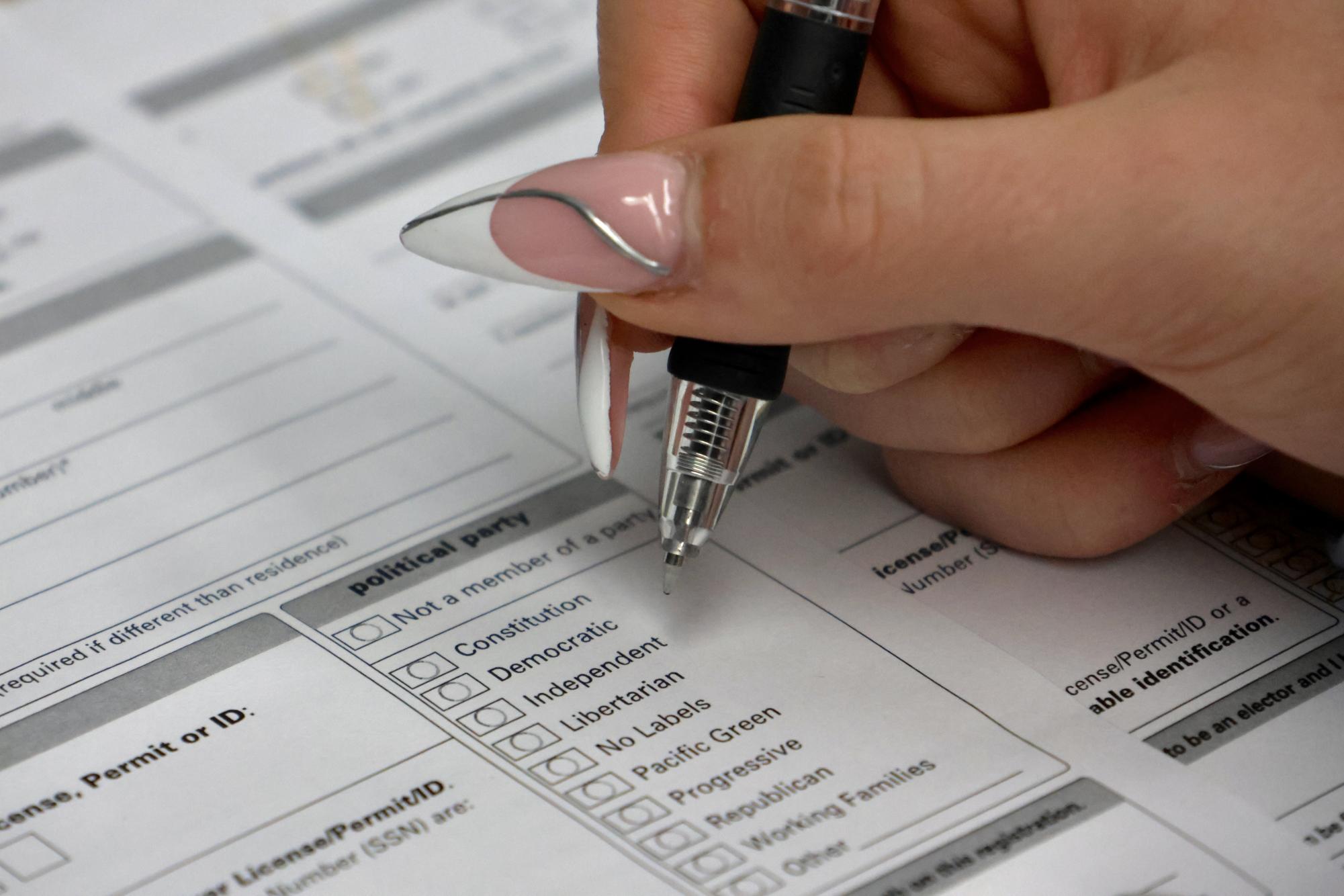

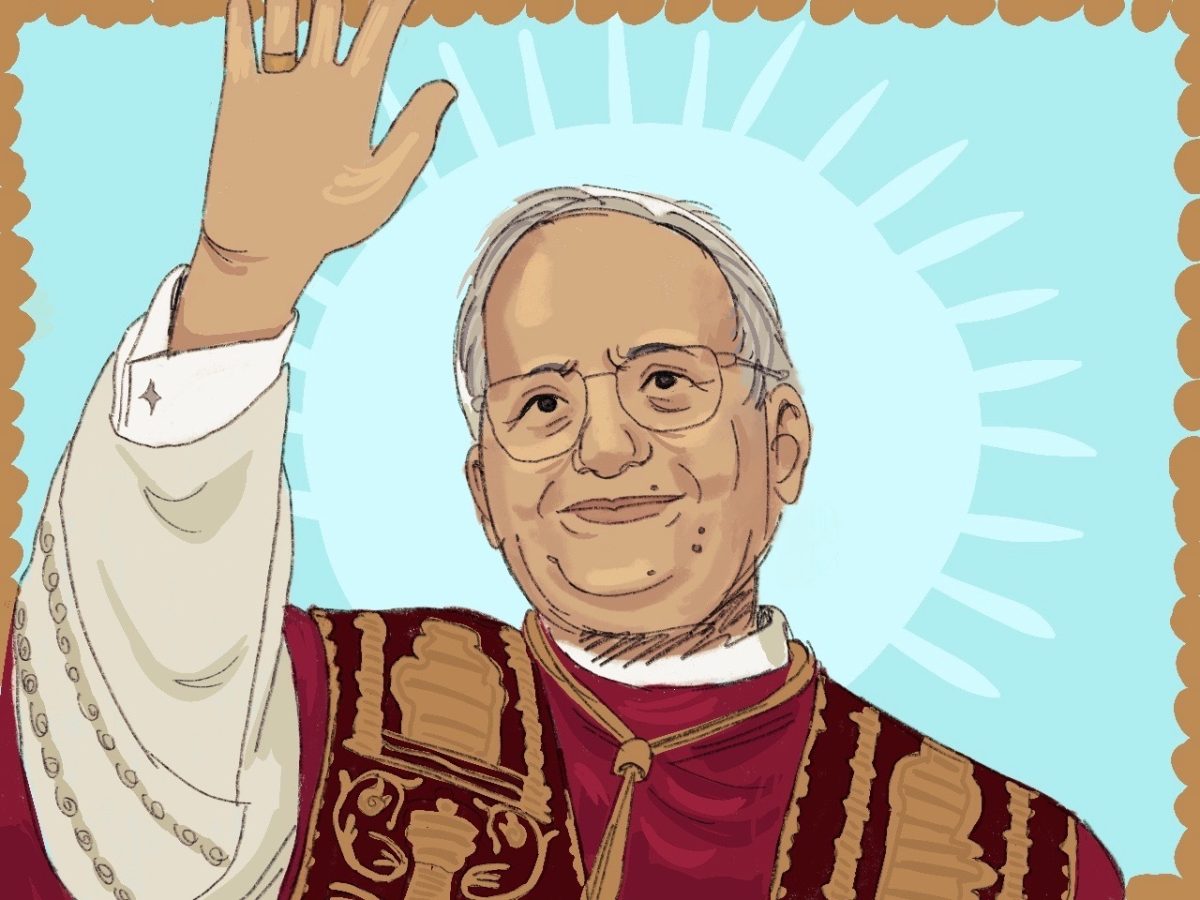

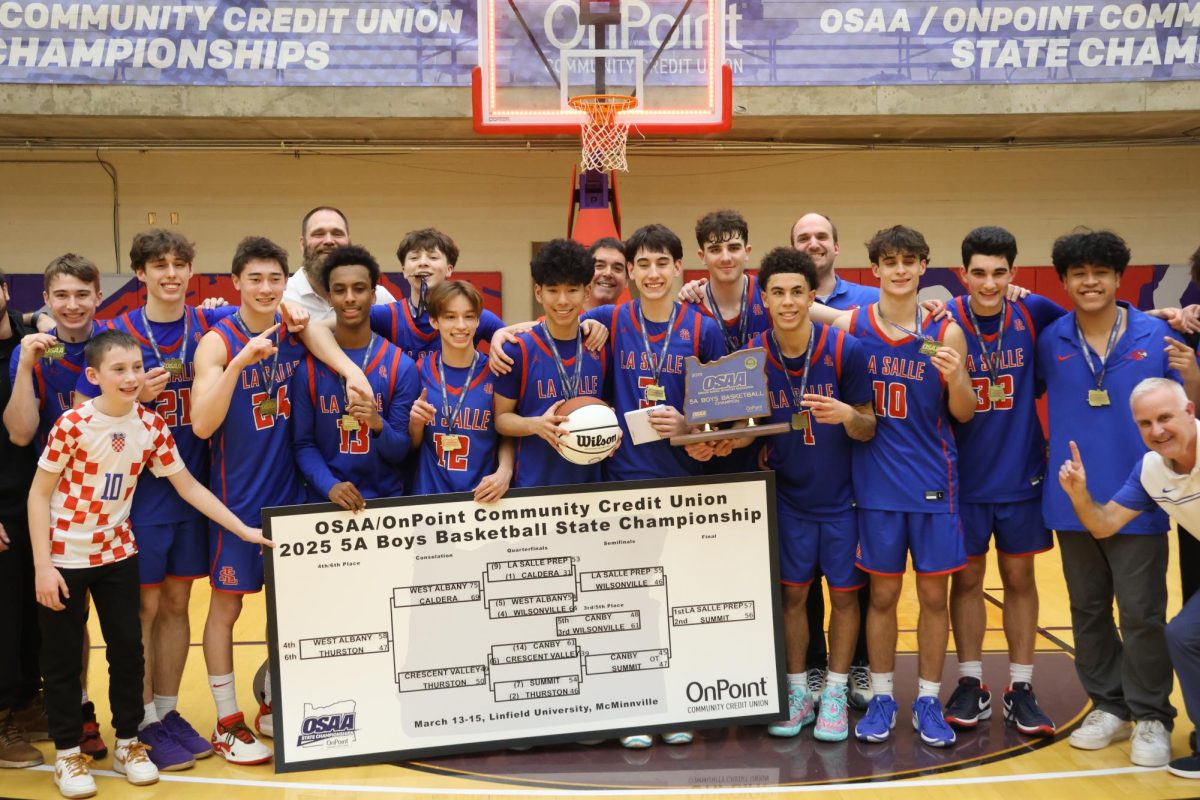
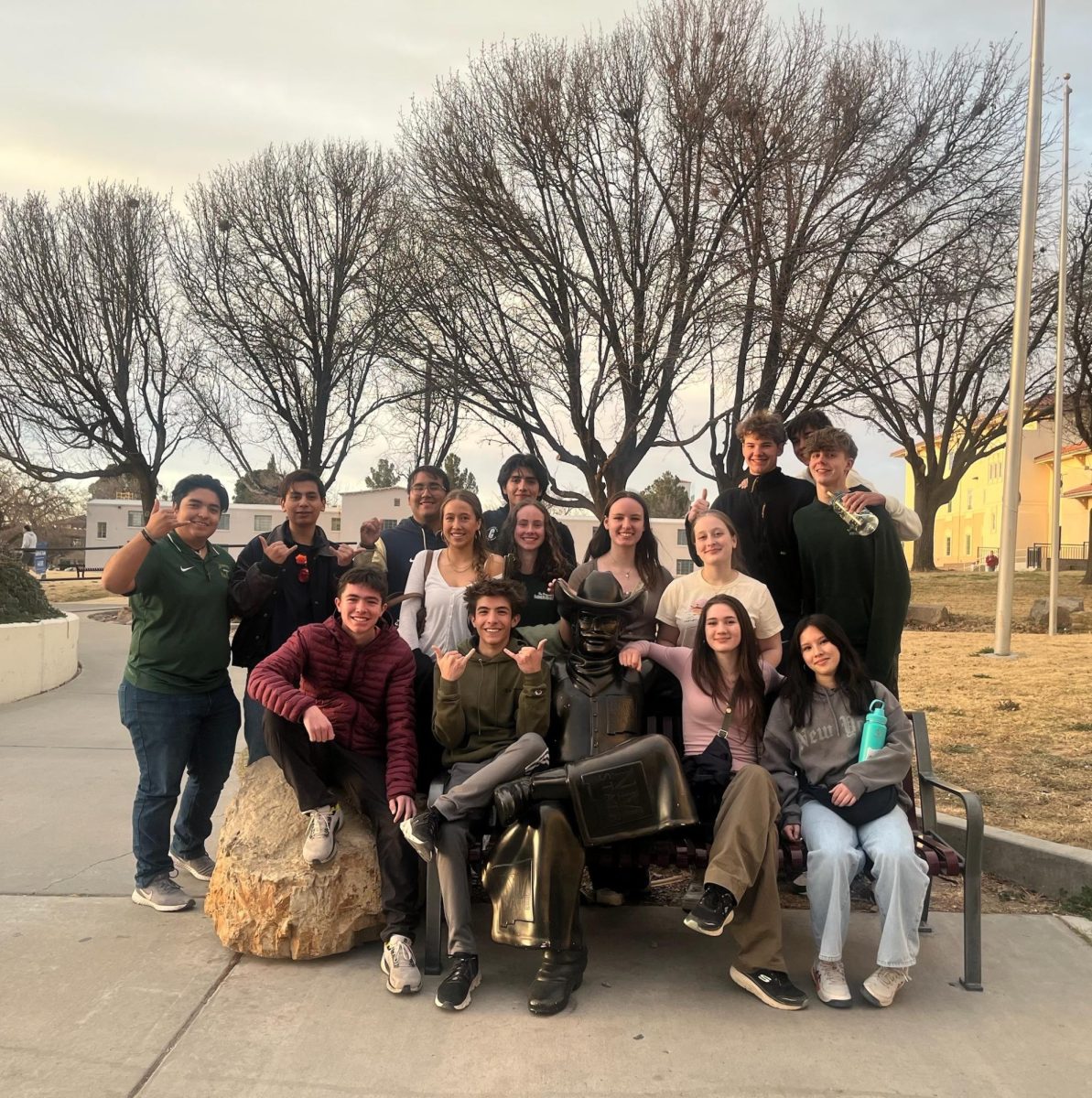
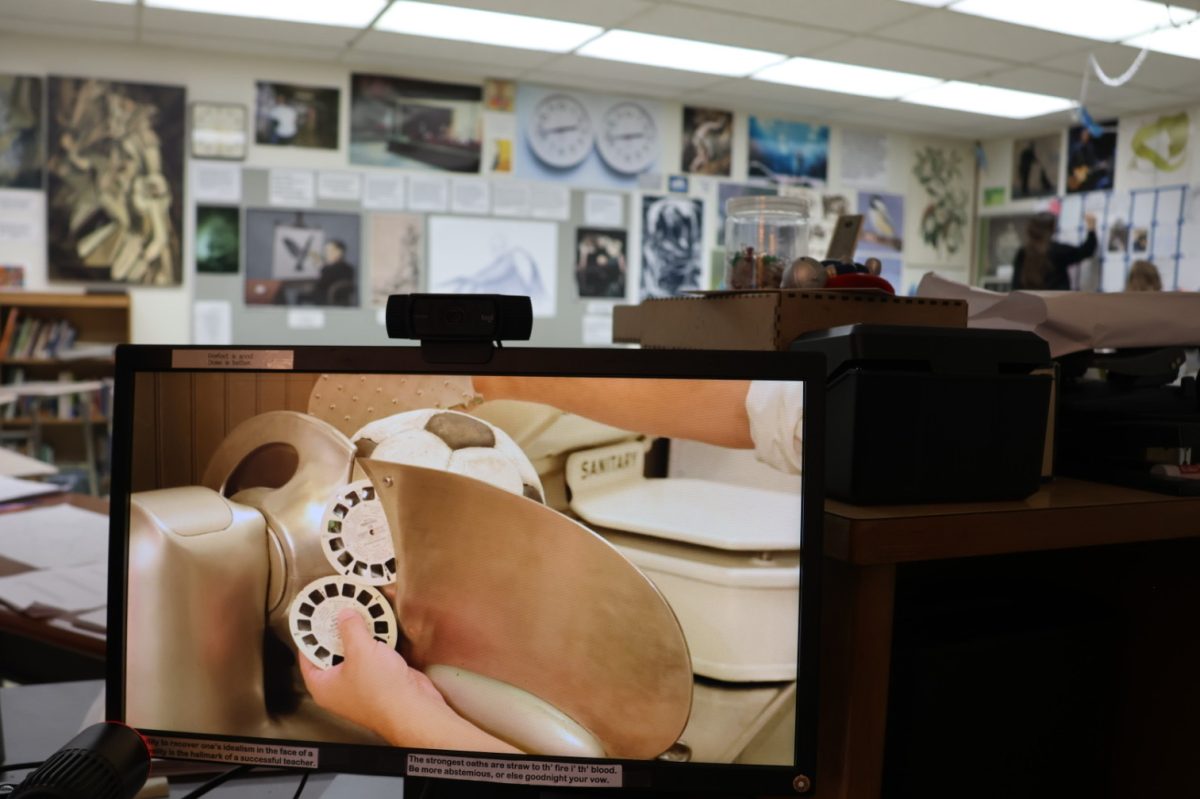
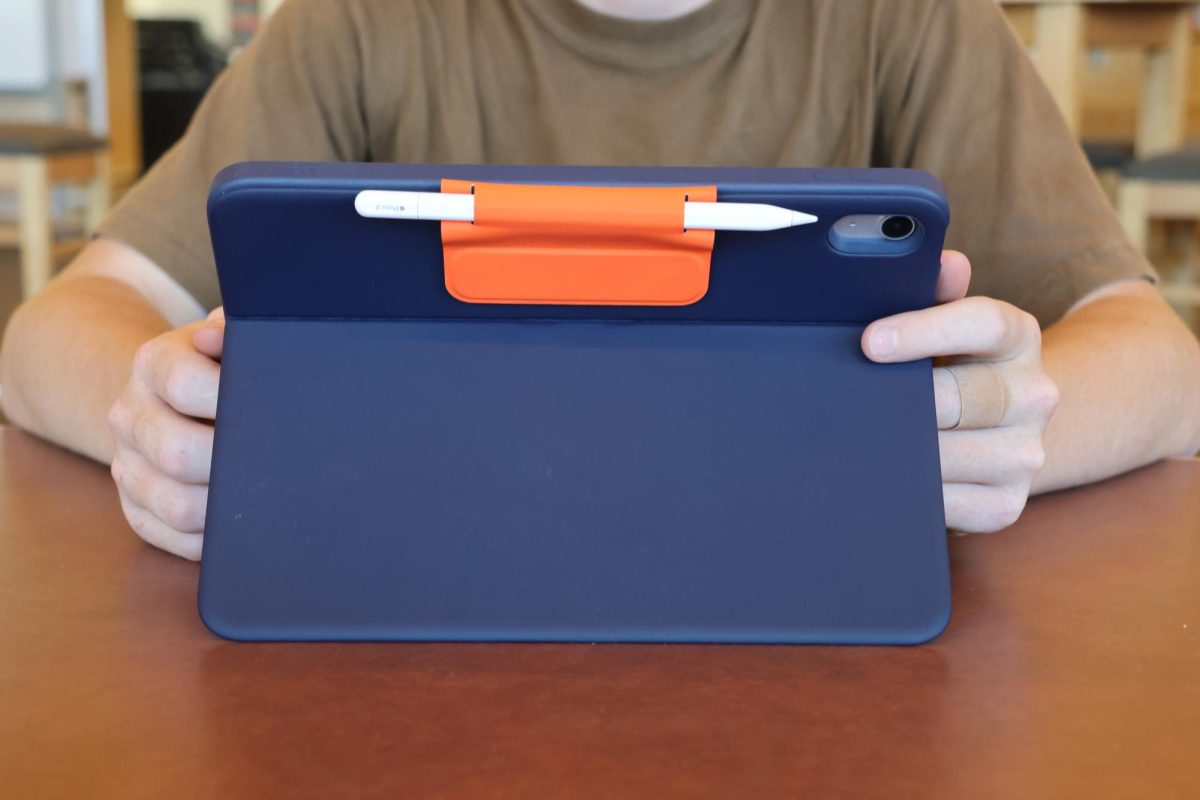
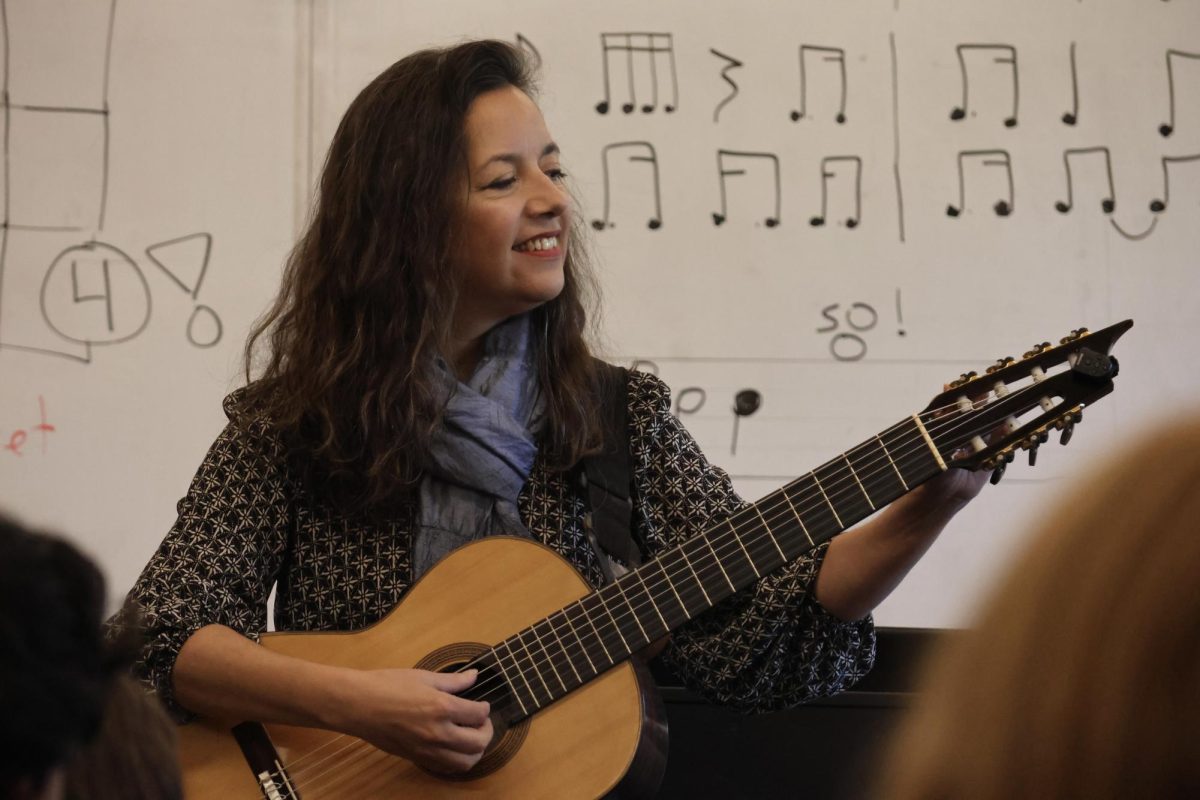
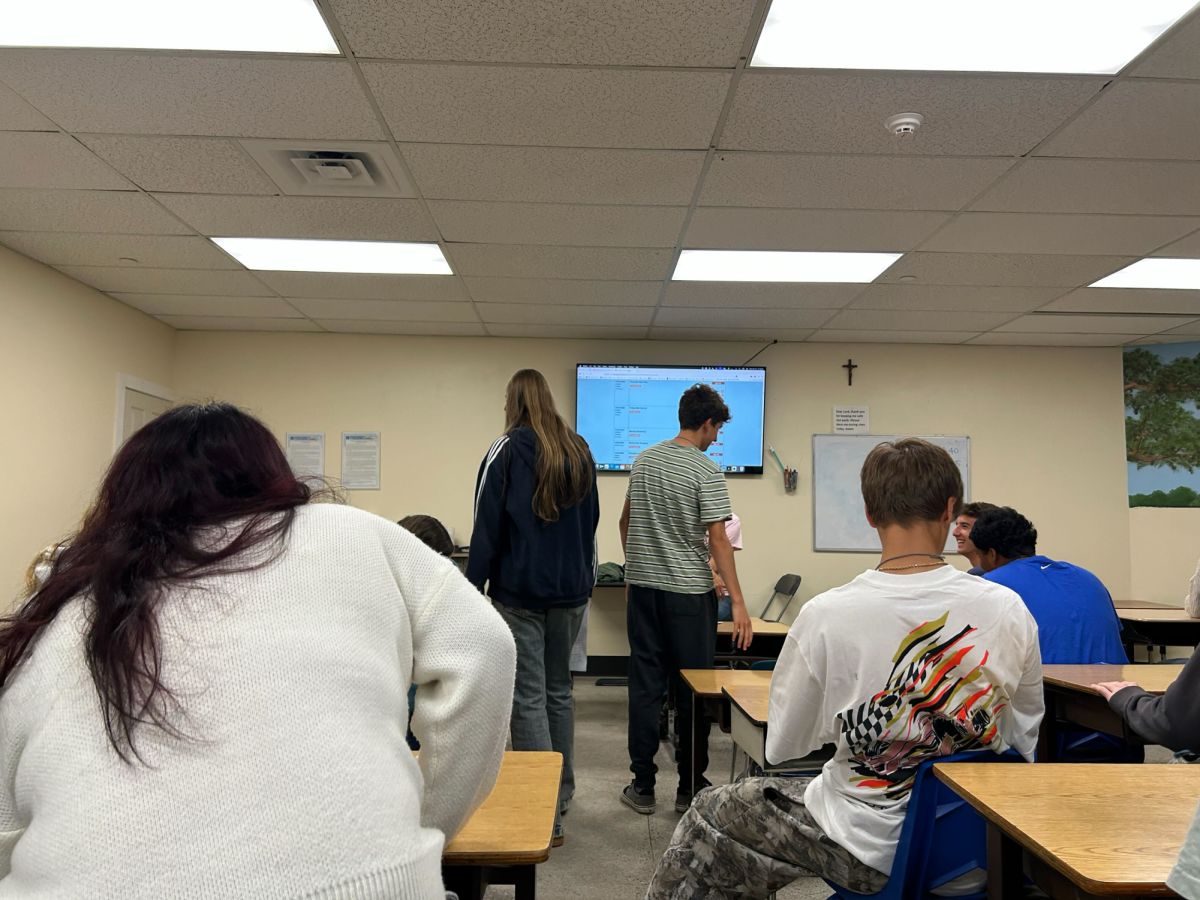
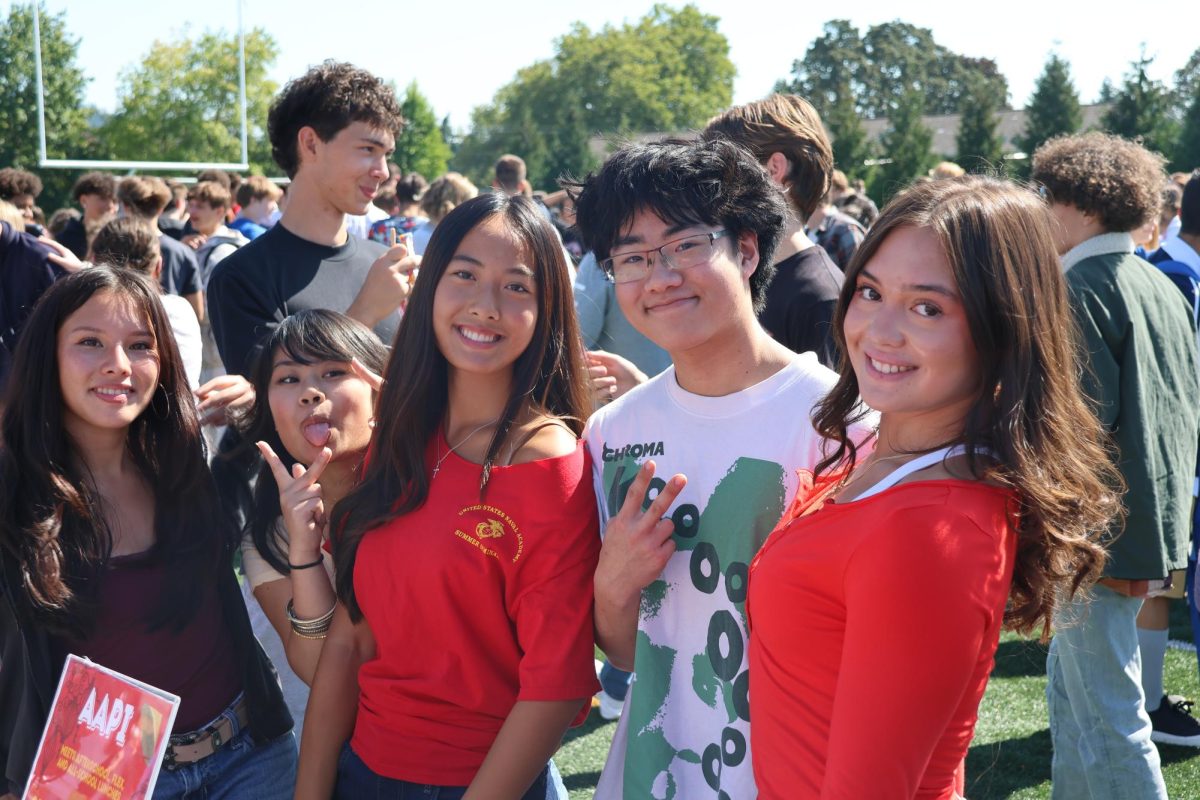
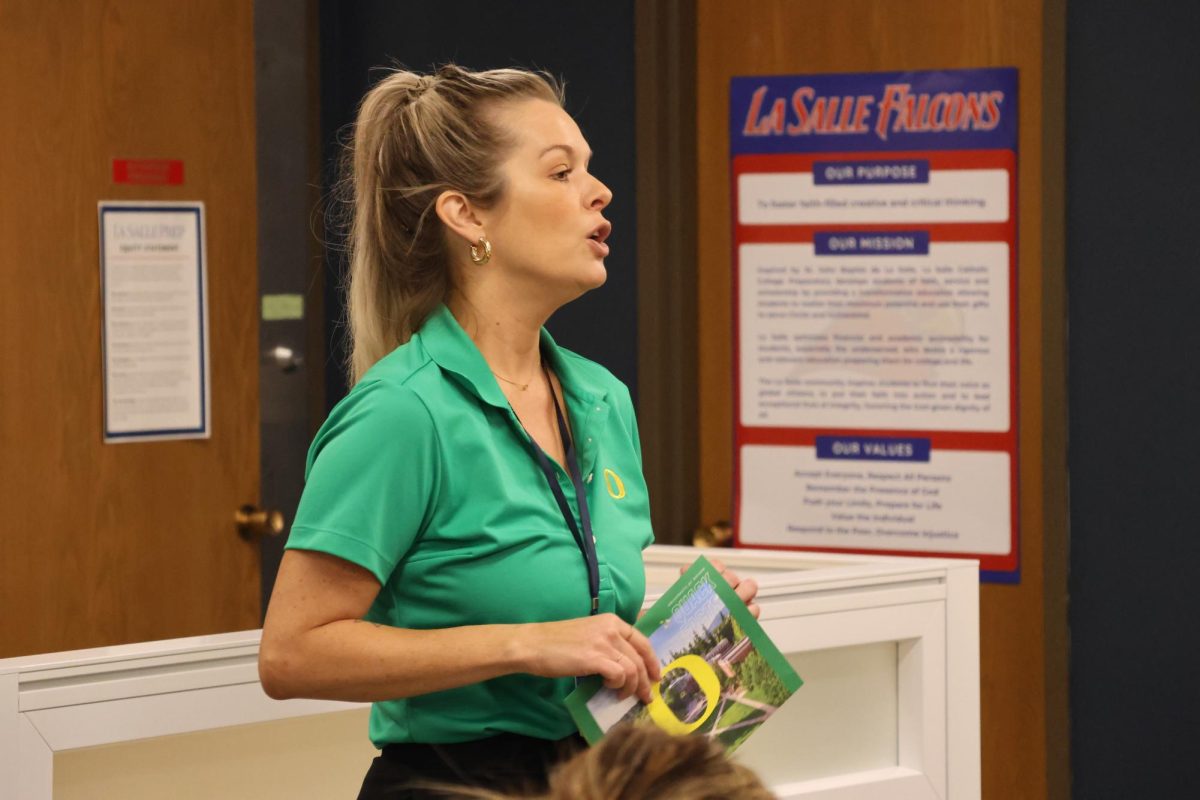
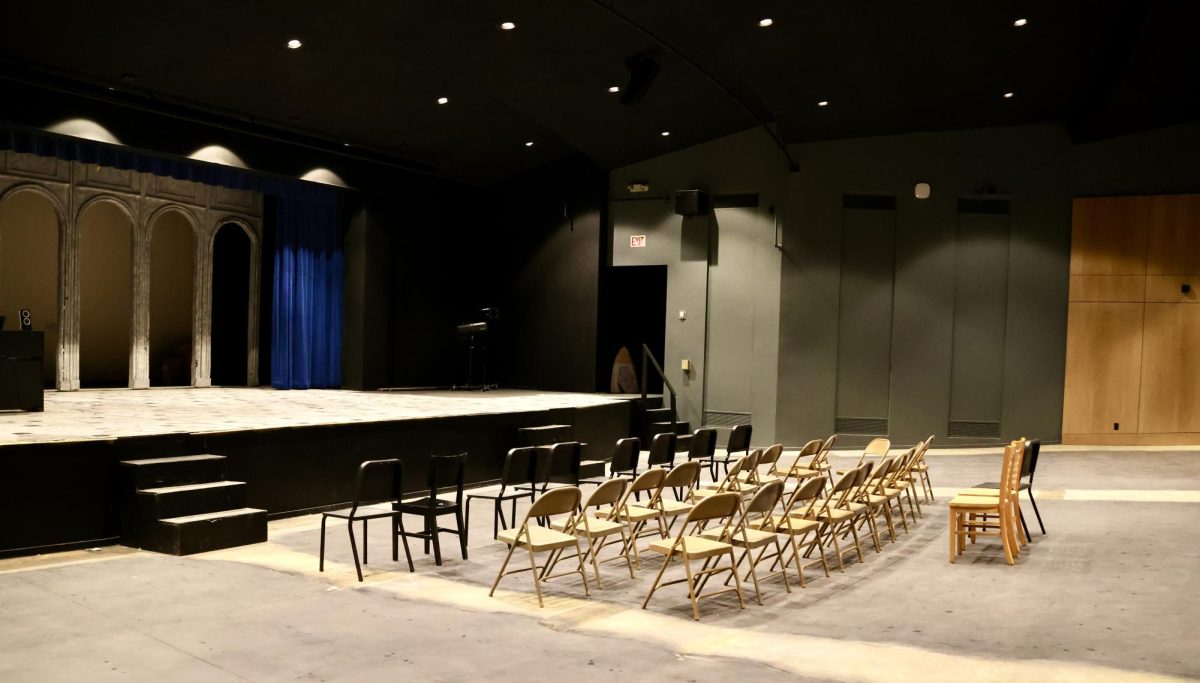
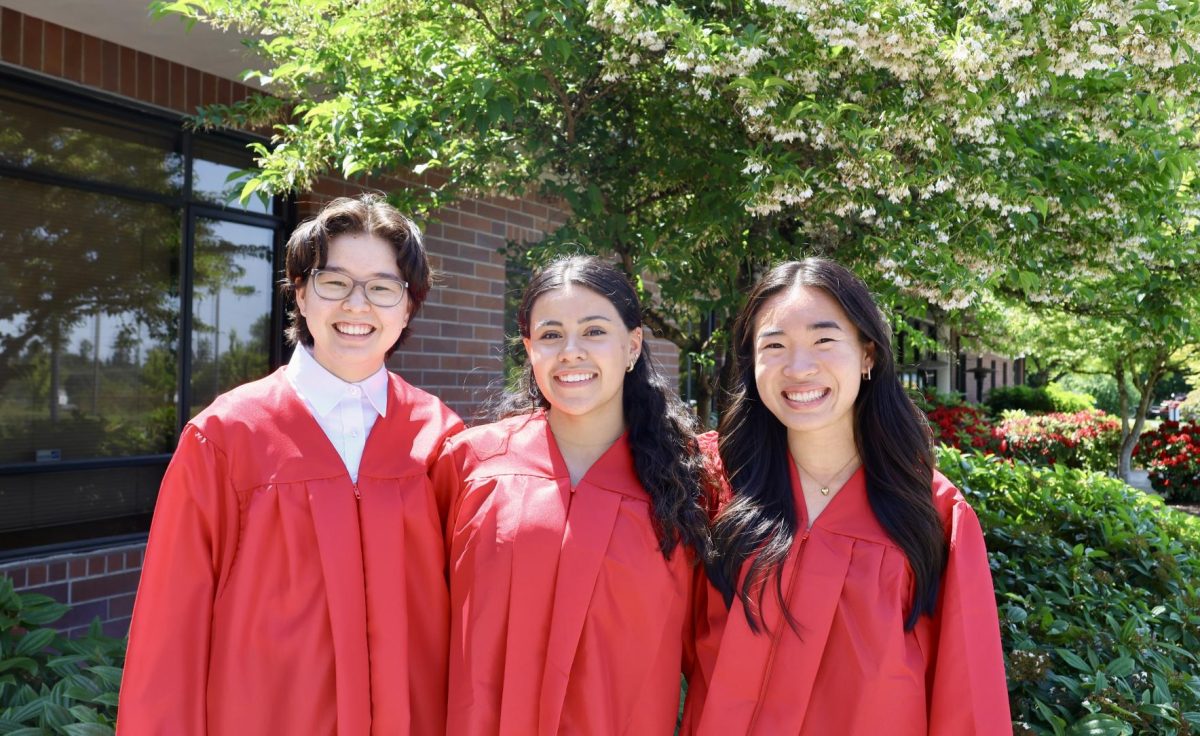
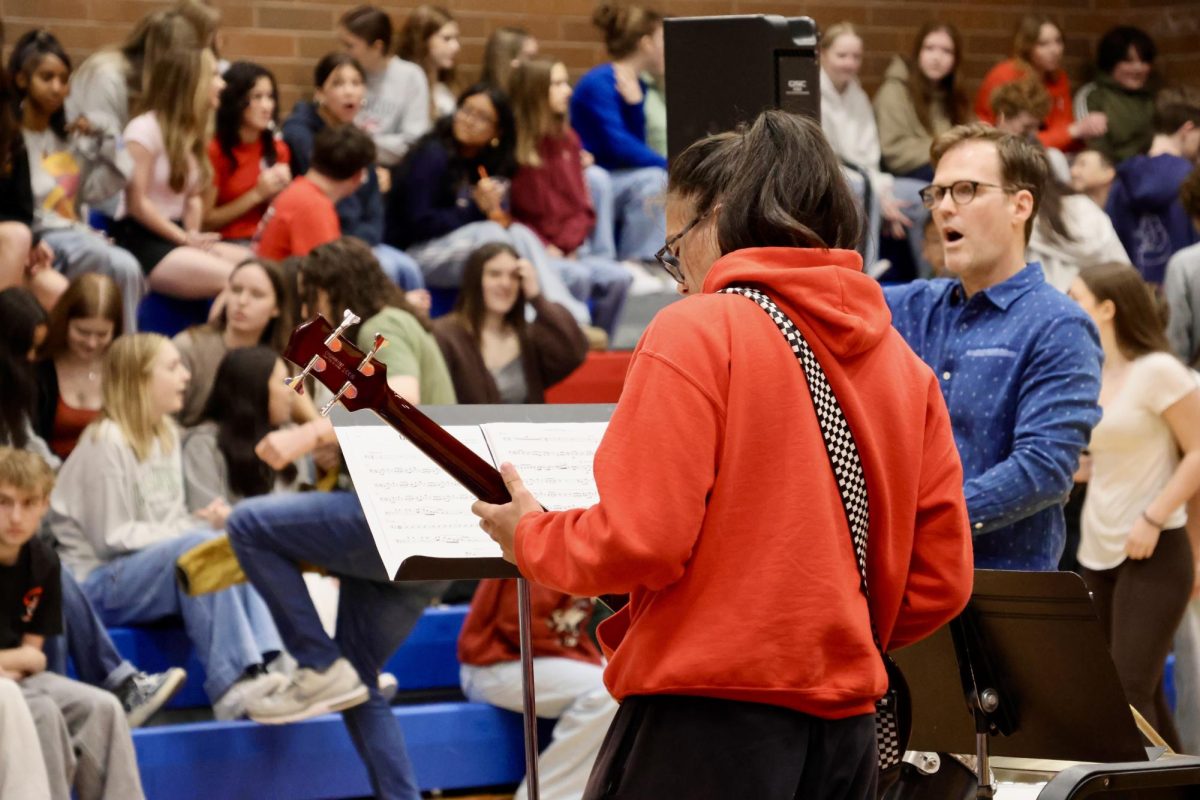


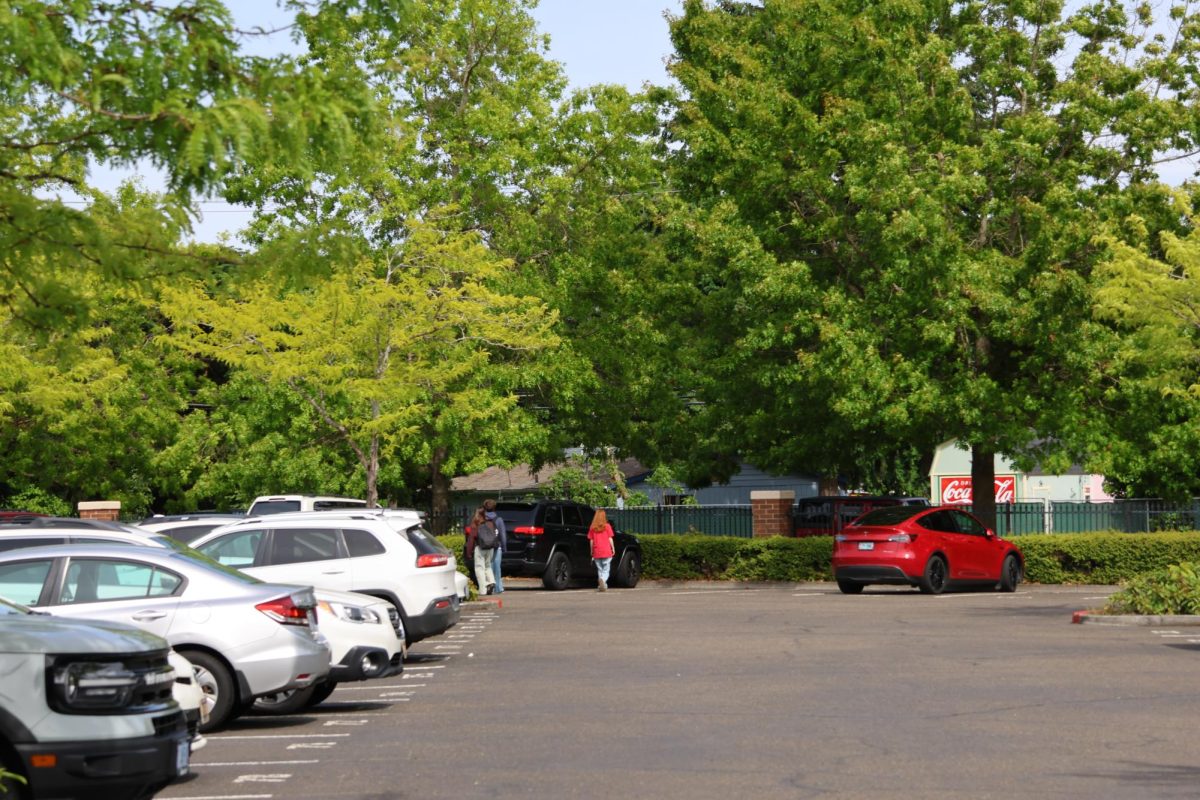


Leslie • May 29, 2024 at 11:52 pm
Glad to hear the lsa students plan to vote! We need sane voters and centrists. Great article!